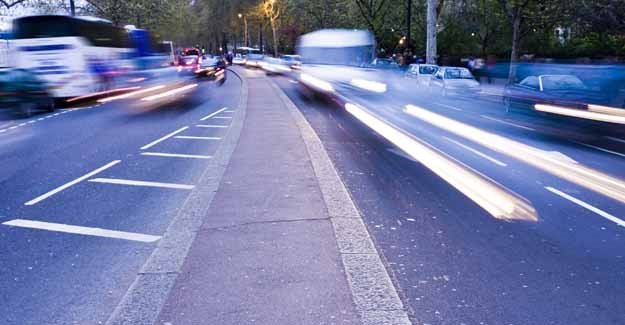This Saturday, young couples all over the country will be going out for what should be the most romantic day of the year – St. Valentine’s Day. But the statistics suggest that for a few the day will end in tragedy. Casualty figures show that people between the ages of 17 and 25 years are those most likely to be involved in motoring incidents resulting in injury or death.*
Royal Automobile Club Foundation research has highlighted the dangers of driver distraction, and in particular of texting whilst driving- an activity which is most common amongst young drivers. 48% of UK drivers aged 18 – 24 have admitted to using short message services (SMS) whilst driving.** Research carried out by TRL for the Foundation shows that texting behind the wheel impairs driving skills more than being drunk or high on drugs***.
Until now publicity and legislation has focused on the risks of speaking on a hand held mobile phone while driving, overlooking the fact that phones are also used for texting, picture messaging and web surfing. Nearly 5,000 texts are sent every second in the UK****. A recent case has been a stark illustration of the possible outcome.*****
This Saturday the RAC Foundation will be urging all young drivers to wait until they are safely out of the car before reading or sending any romantic texts.
Professor Stephen Glaister, Director of the RAC Foundation, said: “Our research clearly shows that a motorist who is texting is significantly more distracted than one at the legal limit for alcohol. Many young drivers would not think of drinking and driving; now they need to understand that texting whilst driving is even more dangerous.”
NOTES
*Road Casualties Great Britain 2007
** RAC Foundation poll of 2002 Facebook users.
*** Full details of the comparative impact of different impairments are available from [email protected]
Summary:
Carrying out the first UK research into the effects of texting while driving, the RAC Foundation and TRL used TRL’s driving simulator to research the effects of writing, reading and ignoring text messages on the driving skills of a test group of 17 – 24 year old motorists. In all key measures of driving performance, young people who were texting and driving were badly affected:
– Reaction times deteriorated by over one-third (35%). This was worse than alcohol at the legal limit (12% slower) and driving under the influence of cannabis (21% slower)
– Drivers drifted out of their lane more often. Steering control was 91% worse, compared to 35% worse when under the influence of cannabis.
– The ability to maintain a safe following distance fell.
**** Mobile Data Association report, February 2008.
***** Example of the consequences of texting while driving:-
In November 2007, a woman driver, who sent and received more than 20 texts at the wheel before she hit and killed a motorist in a stationary car on the A40 in Oxford, has recently been jailed for 21 months and banned for driving for 3 years.
http://www.oxfordmail.co.uk/news/4094142.Texting_driver_jailed_for_killing_motorist


